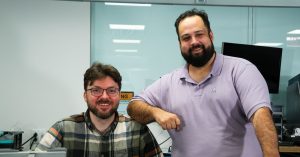In an article published yesterday in MIT Technology Review, Rachel Nuwer wrote a thought provoking piece exploring the boundaries between life and death. It turns out that the more science continues to learn, the more long held notions about death seem to be on less than solid footing. The concept of death as a binary state—either ‘alive’ or ‘dead’—is being challenged by emerging scientific insights. In her article, Nuwer explores how our understanding of death is evolving from a static event to a dynamic process, with significant implications for medical practice and societal perspectives on life’s end.
The traditional view of death, symbolized by the abrupt cessation of vital functions resulting in a ‘moment’ of death as declared by a physician, is increasingly being seen as an oversimplification. Research by a number of labs is suggesting that death is not a moment but rather, a process. And under some circumstances it is a reversible process. This new perspective hinges on the body’s ability to withstand periods of oxygen deprivation, suggesting that the timeline for medical intervention to reverse death may be longer than previously thought. This shift opens up possibilities for extended organ recovery and resuscitation efforts.
Legal and biological definitions of death have historically been centered on the irreversible cessation of heart, lung, and brain functions. The invention of CPR in the 1960s and the introduction of mechanical ventilators revolutionized these concepts. These advancements distinguished between temporary and permanent loss of bodily functions, leading to the recognition of states like cardiac arrest and brain death.
However, the complexity of defining death, especially in terms of brain activity, remains an area of active research and even debate. In an international attempt to facilitate the consistency of brain death criteria, both between different institutions within a country and between different countries, the World Brain Death Project has proposed a minimum set of requirements for brain death and death associated with neurological criteria.
Recent studies have challenged the often held belief that the brain is highly sensitive and fragile under oxygen deprivation. In one study published in the prominent journal Nature, scientists were able to restore certain key brain functions of pig brains hours after death. These findings suggest that the brain and other organs might have a greater capacity for recovery from oxygen deprivation than previously believed. Human studies have also shown that brain activity can persist and even surge during states of near-death, indicating a more robust resistance to oxygen deprivation than assumed in humans as well.
These insights and the question they raise are not just academic or philosophical—they have real-world implications of practical consequences. Understanding the dying process more precisely could lead to better rescue efforts and change medical protocols and practices, potentially saving lives that are currently lost due to limitations in medical knowledge or resources. For instance, victims of heart attacks, severe blood loss, or asphyxiation might stand a better chance of revival with advanced medical interventions.
Beyond the brain and brain death itself, related efforts are studying and attempting to develop techniques for restoring metabolic function in a number of organs other than the brain after death, including the heart and kidneys, which could greatly enhance organ donation capabilities.
While these developments are promising, researchers caution against overpromising. The path to these medical advancements is paved with years of research and ethical considerations. The exploration into the dying process will surely challenge not only scientific and medical fields but also societal, theological, and legal considerations, as it reshapes our understanding of one of life’s most profound phenomena. At some point, policy and regulations will need to follow—further adding to the complexity of the topic.
The transition from life to death is becoming increasingly blurred as scientific research uncovers previously unknown or poorly understood complexities about the physiology and reversibility of the dying process. This evolving understanding promises to redefine medical practices, extend the window for organ recovery, and challenge our societal notions of life and death. However, this is a true journey, in the sense that the science and its implications will necessarily involve continuous research, ethical and legal considerations, and a need for realistic expectations. While death is a universal experience, what it is and how we go from living to dying are anything but static.
Read the full article here








